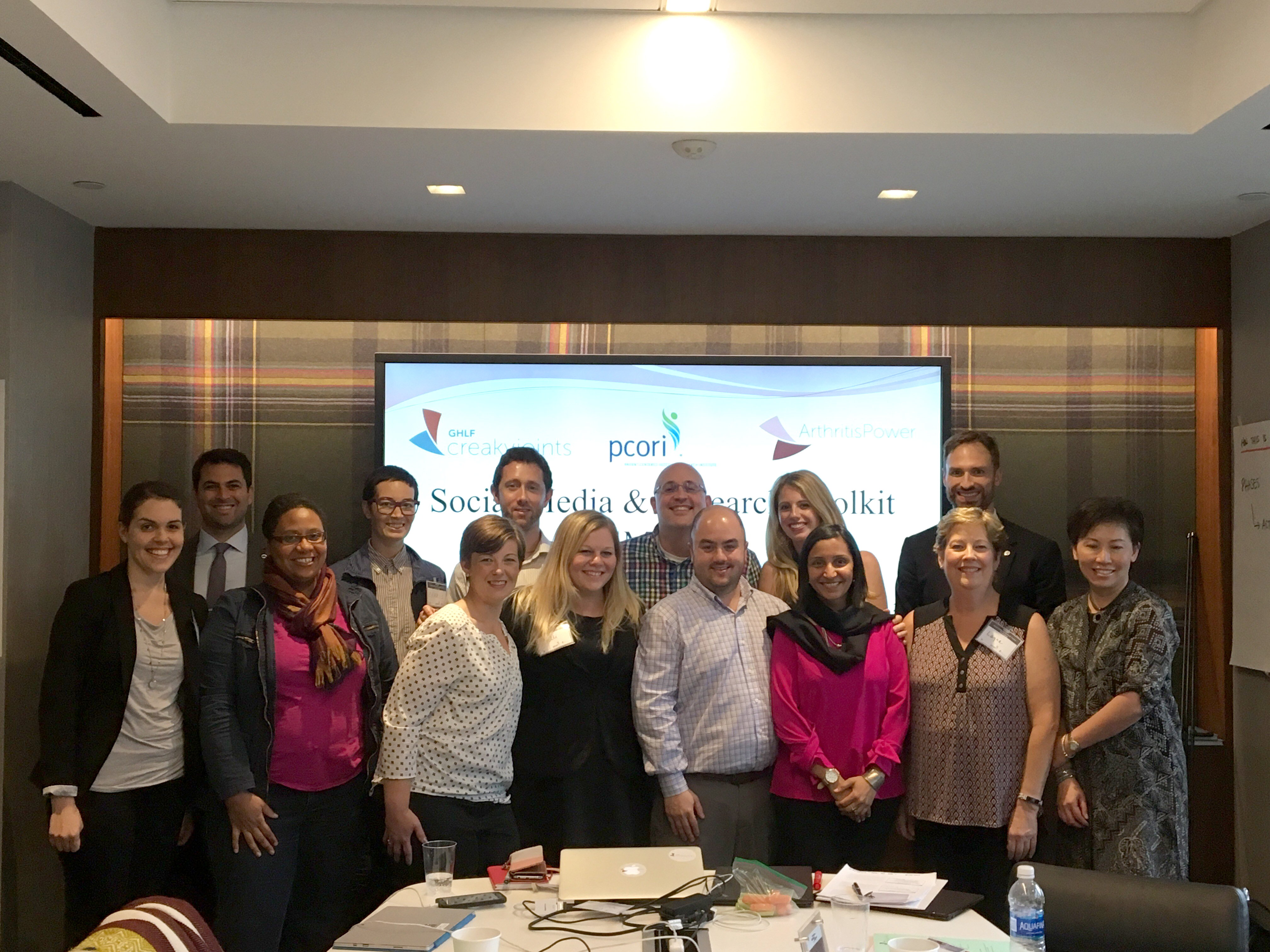What is SMART?
SMART, the Social Media And Research Toolkit, aims to develop best practices for using social media and networking sites to raise research questions, engage open dialogue between patients and clinicians, disseminate evidence-based information, and match patients with research opportunities.
Click here to download the SMART User Guide
Click here to download the SMART Slide Deck
SMART: Objectives
- To identify spondyloarthritis (SpA) patients and other stakeholders who are active on social media and interested in becoming partners in research to help create a toolkit of best practices for social media engagement in health research.
- To develop a toolkit with resources for SpA patients and clinicians interested in using social media as a platform for research engagement. The toolkit will be replicable for other diseases or conditions.
- To conduct a SMART conference that brings together SpA patient participants, clinicians and researchers to pilot and discuss the SMART toolkit
The Stakeholders
SMART was developed with a multi-stakeholder engagement plan. Patients were recruited from the CreakyJoints community and identified by other project collaborators. They were joined by patients and clinician partners from the Cleveland Clinic Foundation with advisory input from National Psoriasis Foundation and Spondylitis Association of America. The project is funded by the Patient Centered Outcomes Research Institute (PCORI). The pilot toolkit was developed with a focus on spondyloarthritis with the aim of developing a framework that can be employed for other chronic disease conditions.

Why This Project?
Why is it important for clinicians, researchers and patients?
Clinicians can use these platforms to identify and understand what research topics are most important to patients, what decisions matter most to patients, what factors contribute to health-related quality of life, and what gaps may exists in patient’s understanding of treatment options.
Patients can learn to disseminate evidence-based health information.
Social Media and Research Toolkit (SMART) Workshop Objectives
- Define social media and highlight the opportunities and challenges of using social media for research-related roles, activities and engagement
- Present best practices and guidelines for SpA patients and clinicians interested in using online platforms (i.e., Facebook, Twitter, Blogs / patient narratives) for research activities
- Get feedback from SpA stakeholders to improve the toolkit and make it useful across many conditions and disease communities
Why is it important for clinicians, researchers and patients?
Clinicians can use these platforms to identify and understand what research topics are most important to patients, what decisions matter most to patients, what factors contribute to health-related quality of life, and what gaps may exists in patient’s understanding of treatment options.
Patients can learn to disseminate evidence-based health information.
Social Media and Research Toolkit (SMART): An overview
On August 18, 2017, patients, clinicians and researchers came together for a one-day workshop to pilot and discuss the SMART toolkit.
Click on the video below to see what they said about SMART.
SMART Team

Top Row: Seth Ginsberg (GHLF), Charis Hill (Patient Partner), Michael Siegel (National Psoriasis Foundation), Eddie Applegate (Patient Partner), Lilly Stairs (Patient Partner), Ben Nowell (GHLF)
Bottom Row: Rachel Mosbacher (PCORI), Dawn Gibson (Patient Leader), Regan Reynolds (Patient Partner), Kelli Carlson (Patient Leader), Joe Coe (GHLF), Shilpa Venkatachalam (GHLF), Layne Martin (Patient Partner), Elaine Husni (Cleveland Clinic)





